The show must go on(line)
Getai goes digital amid Covid-19 as it chases younger audience to keep culture alive
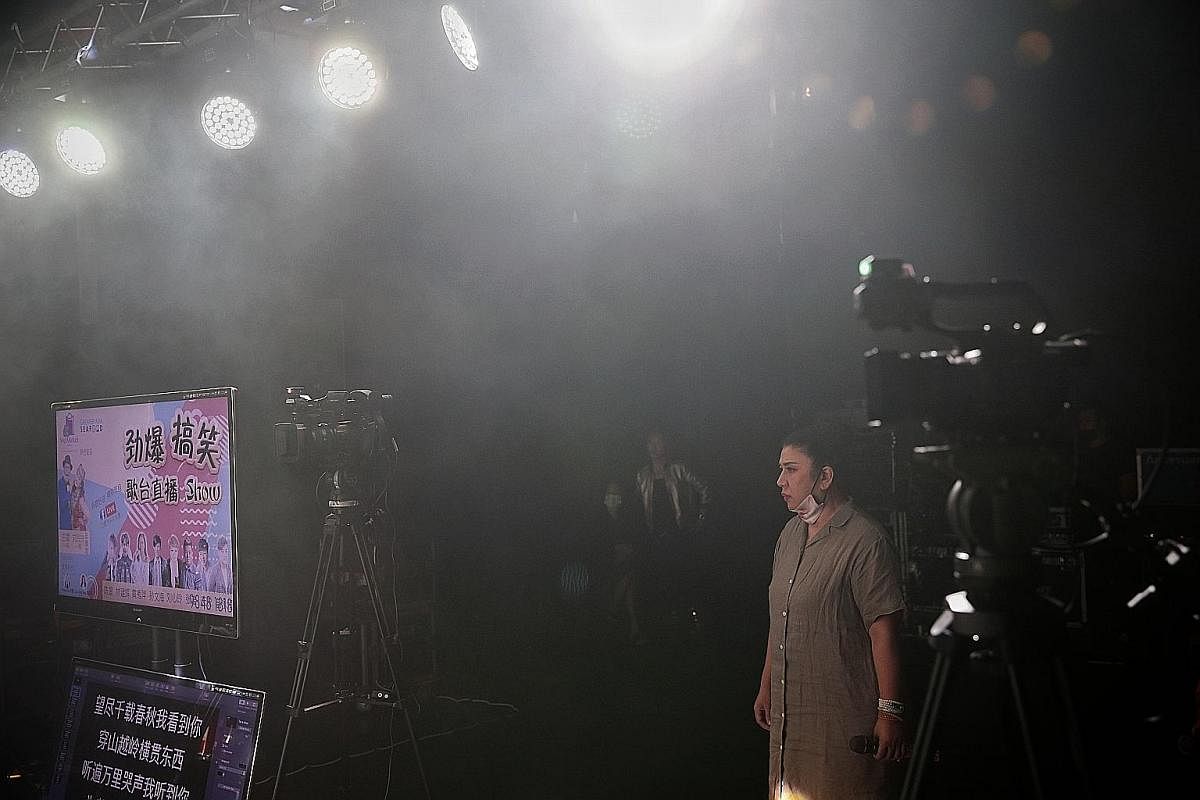
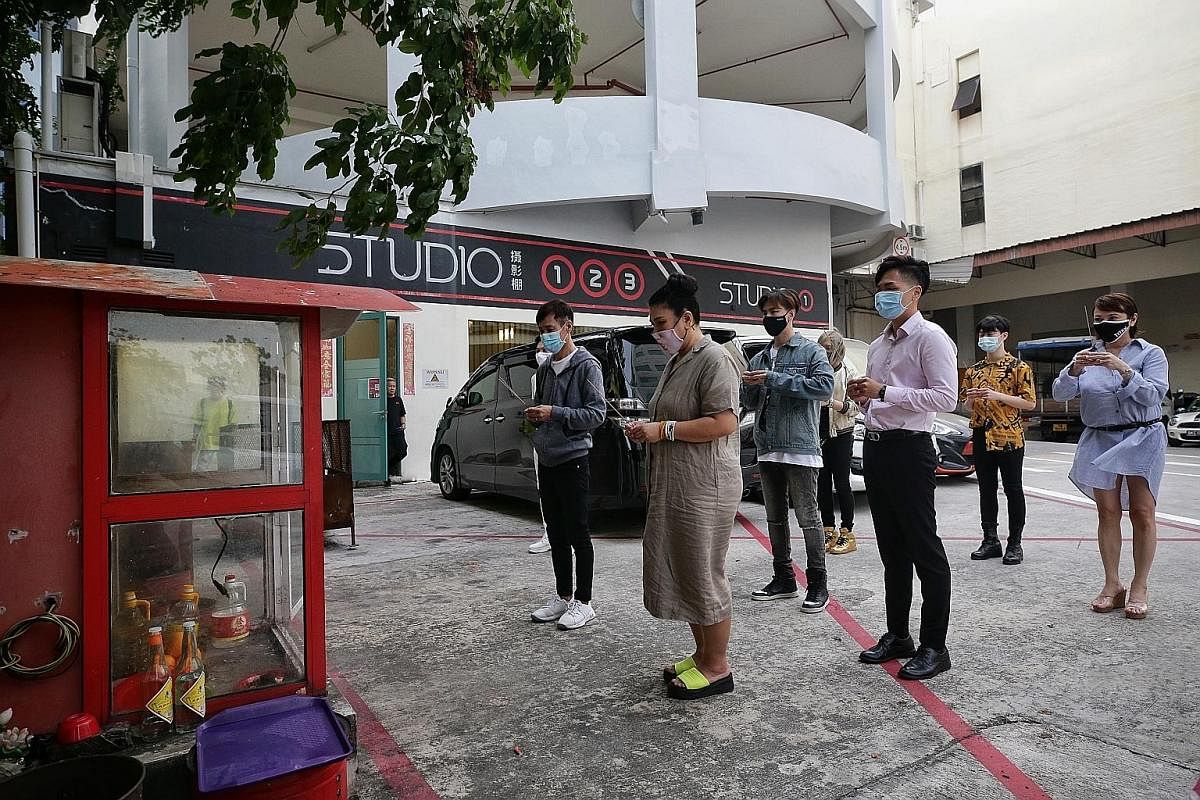
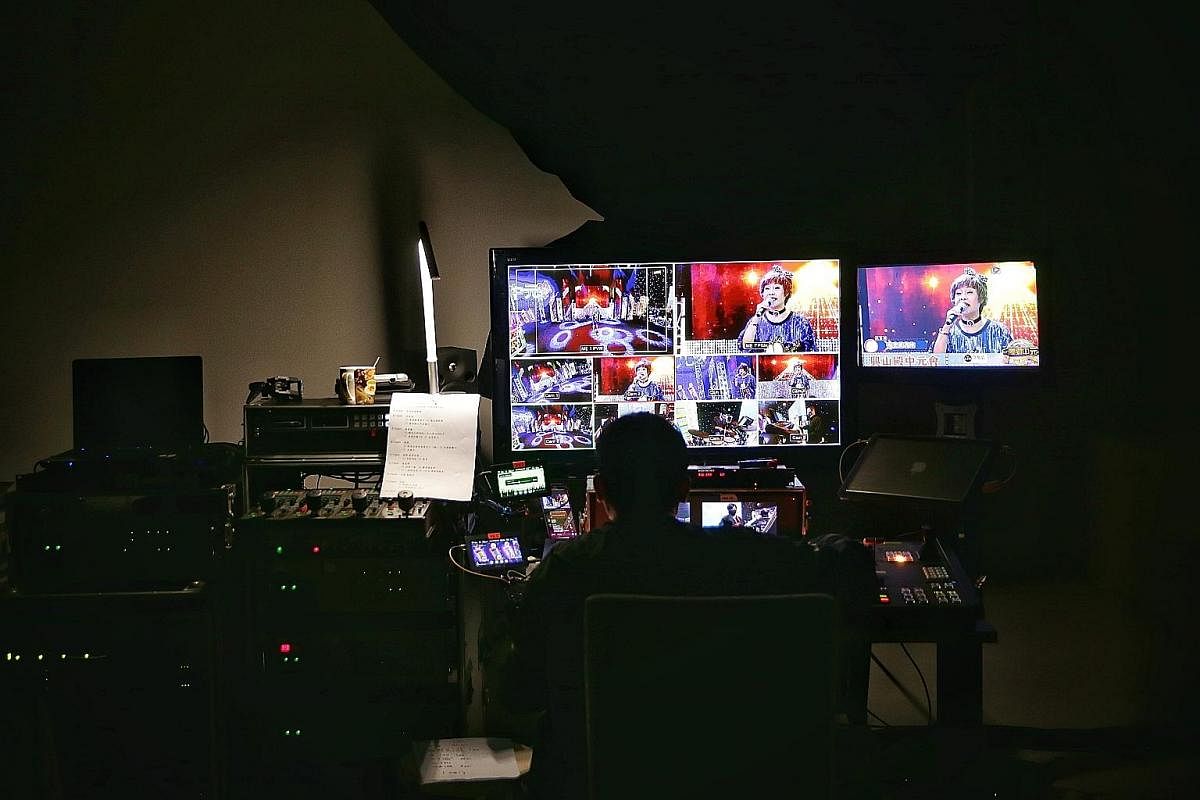



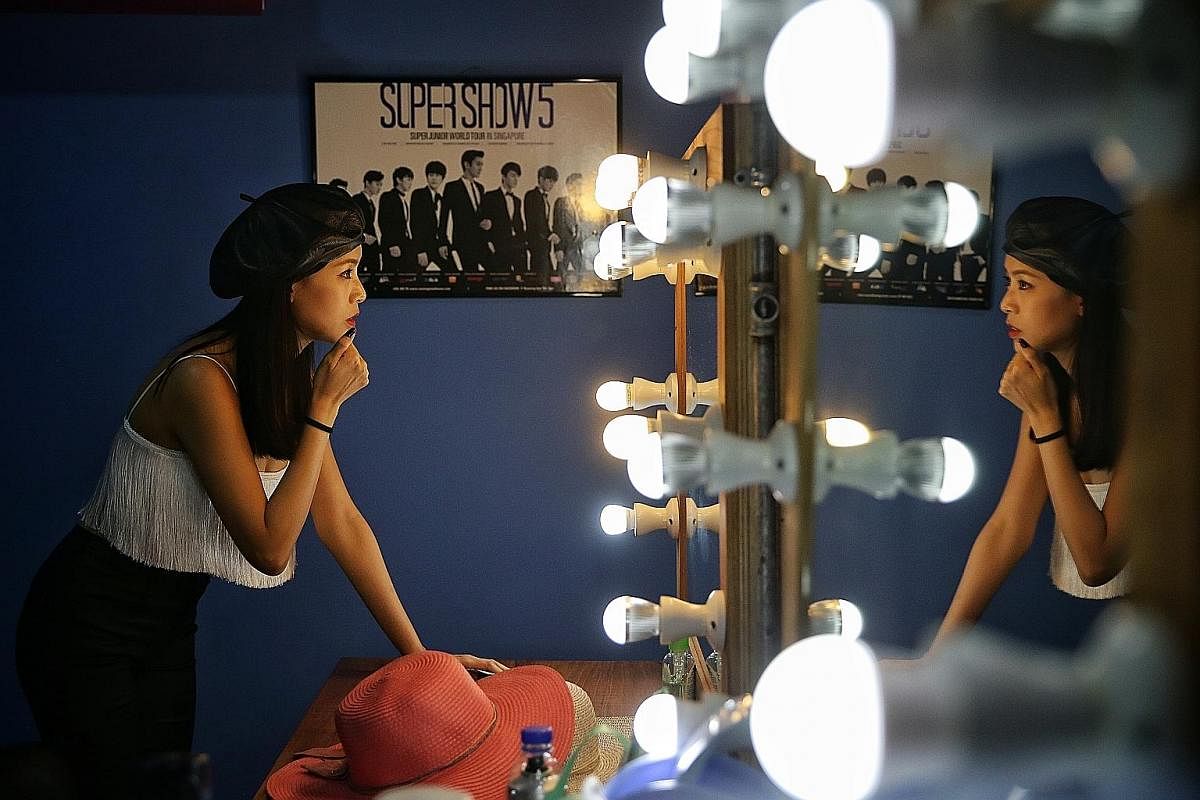
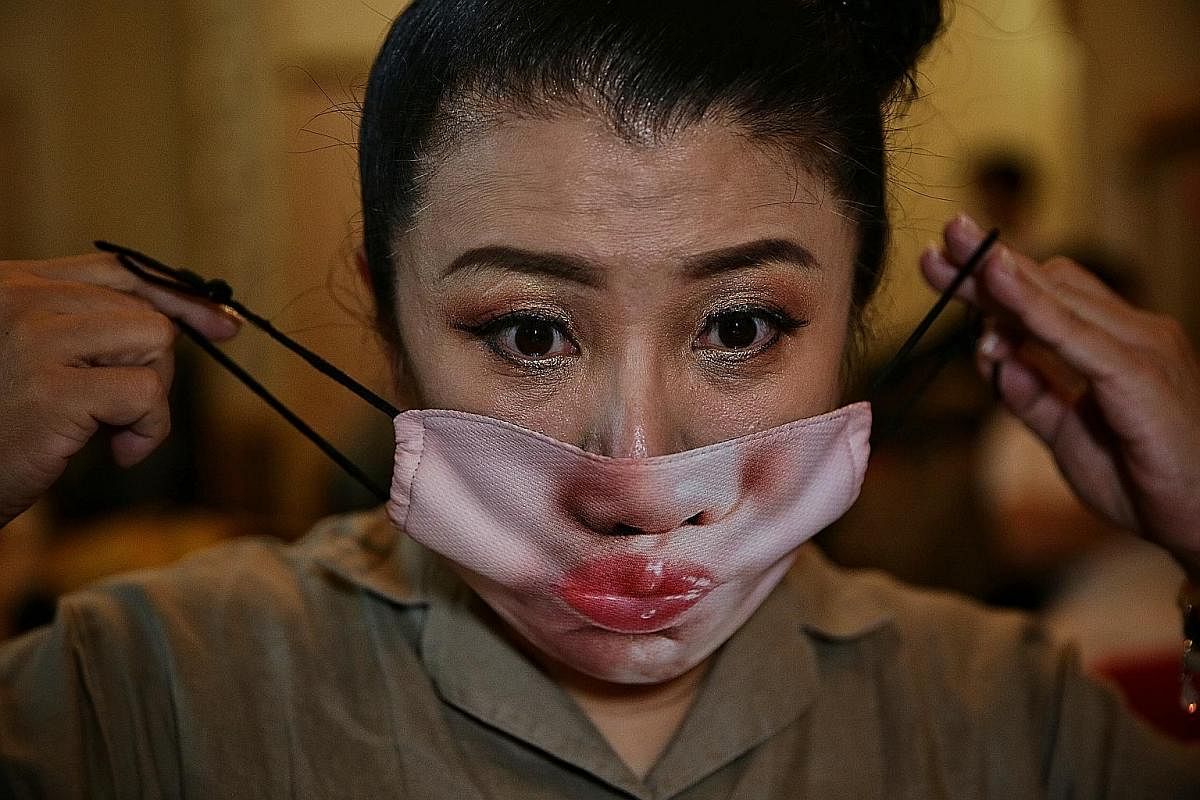


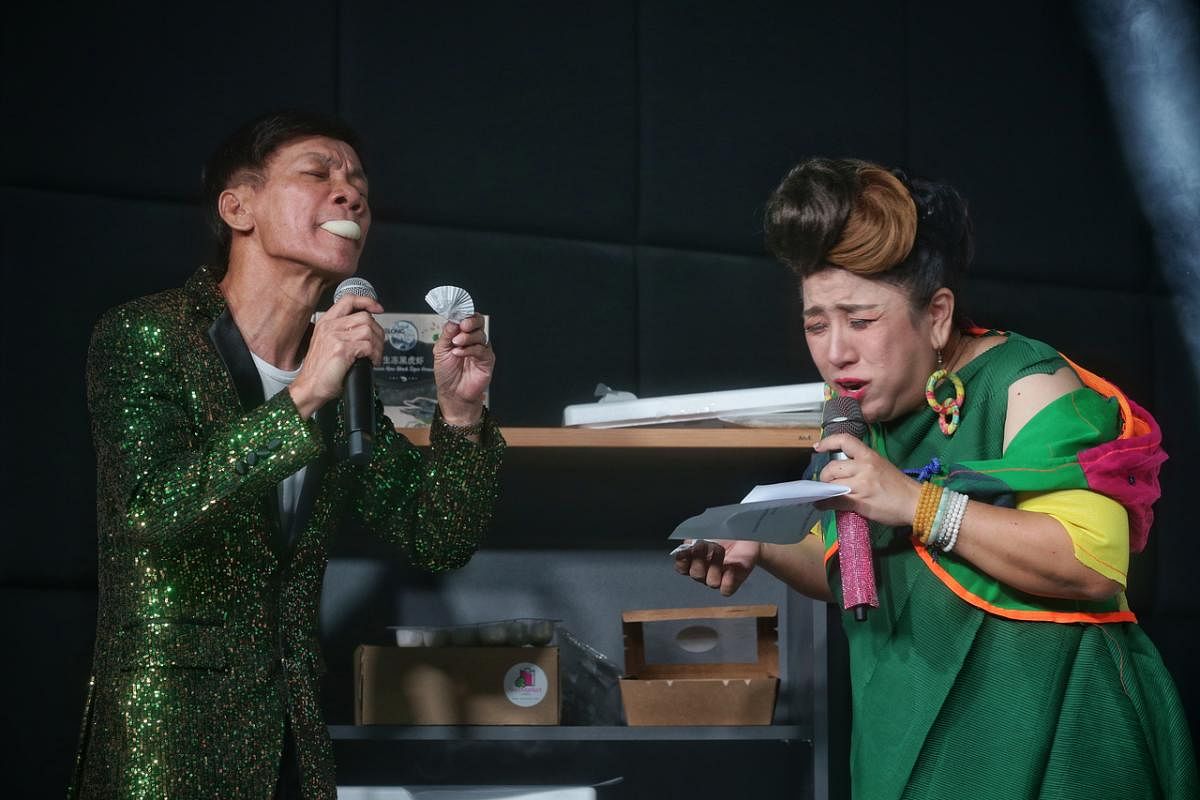
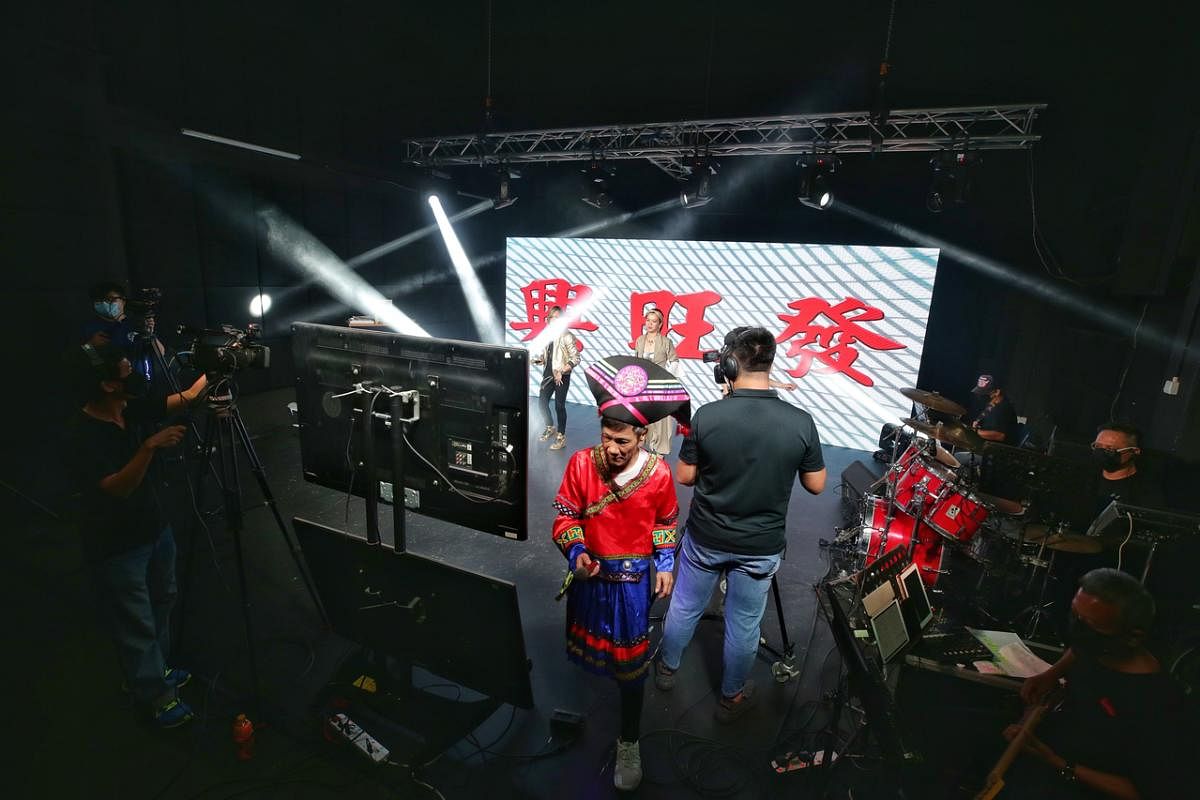
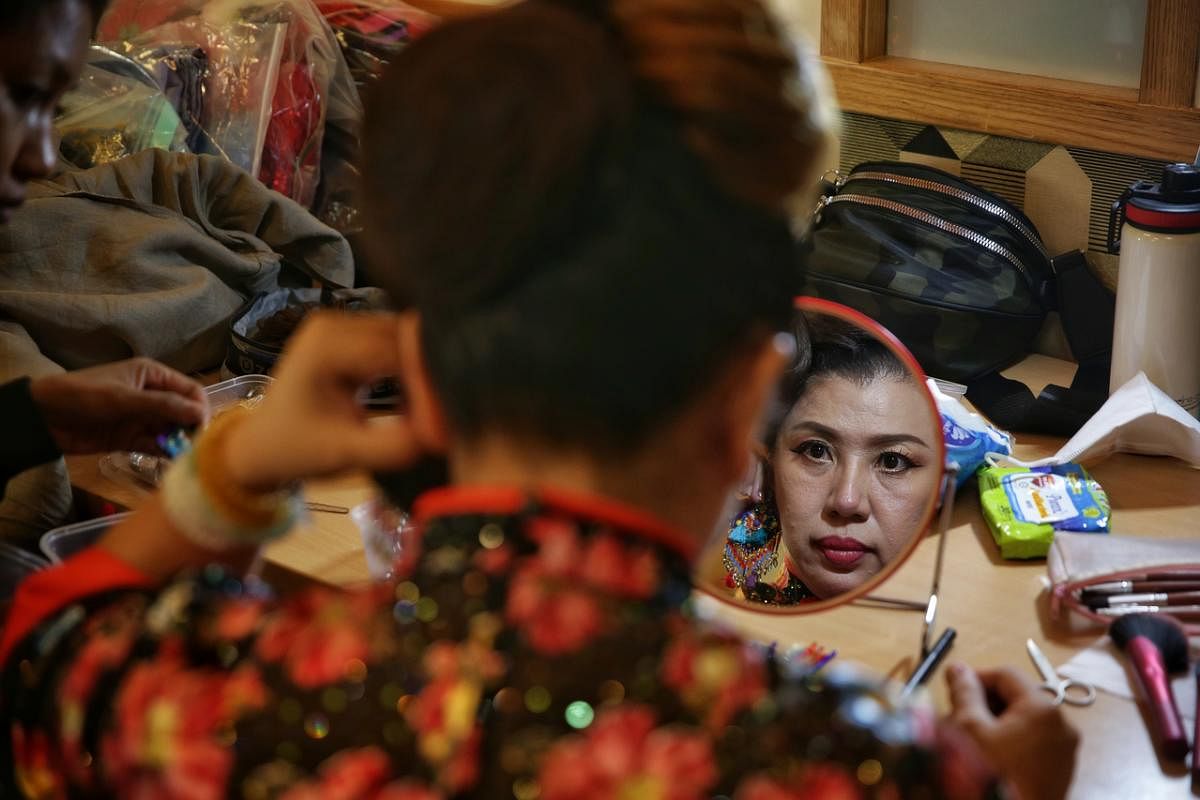



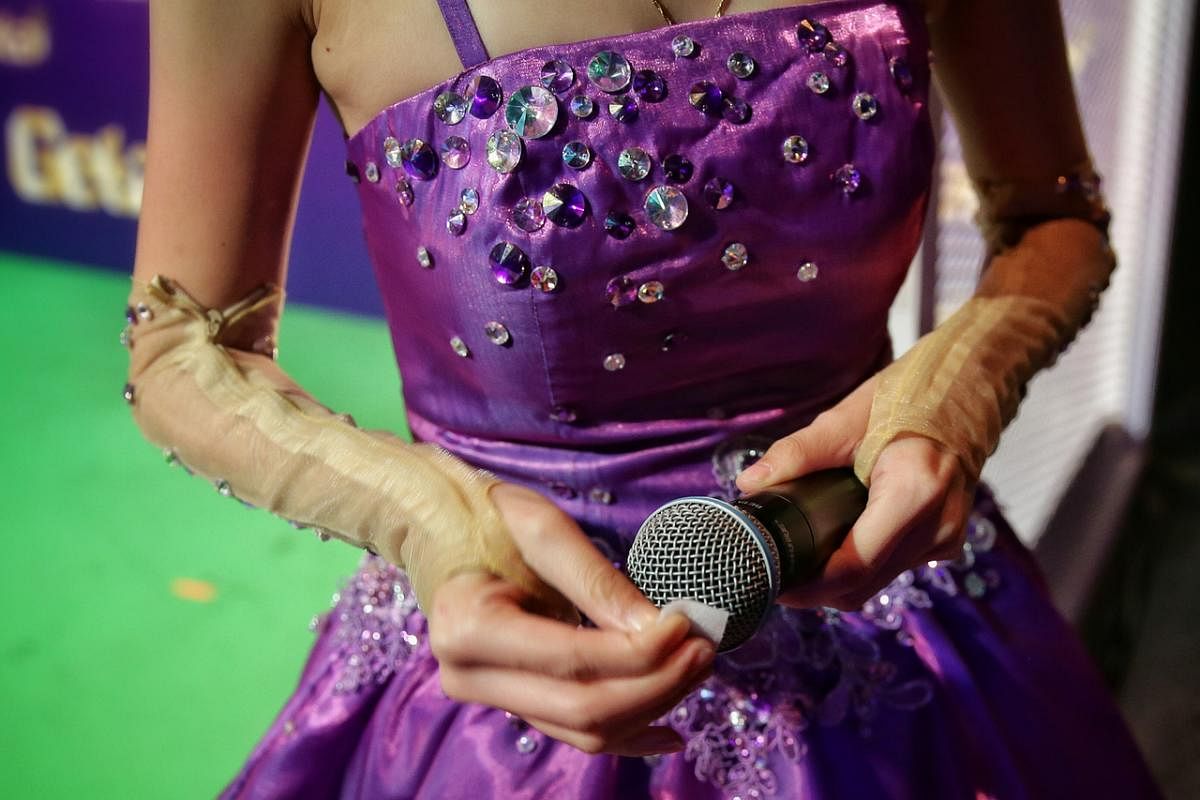


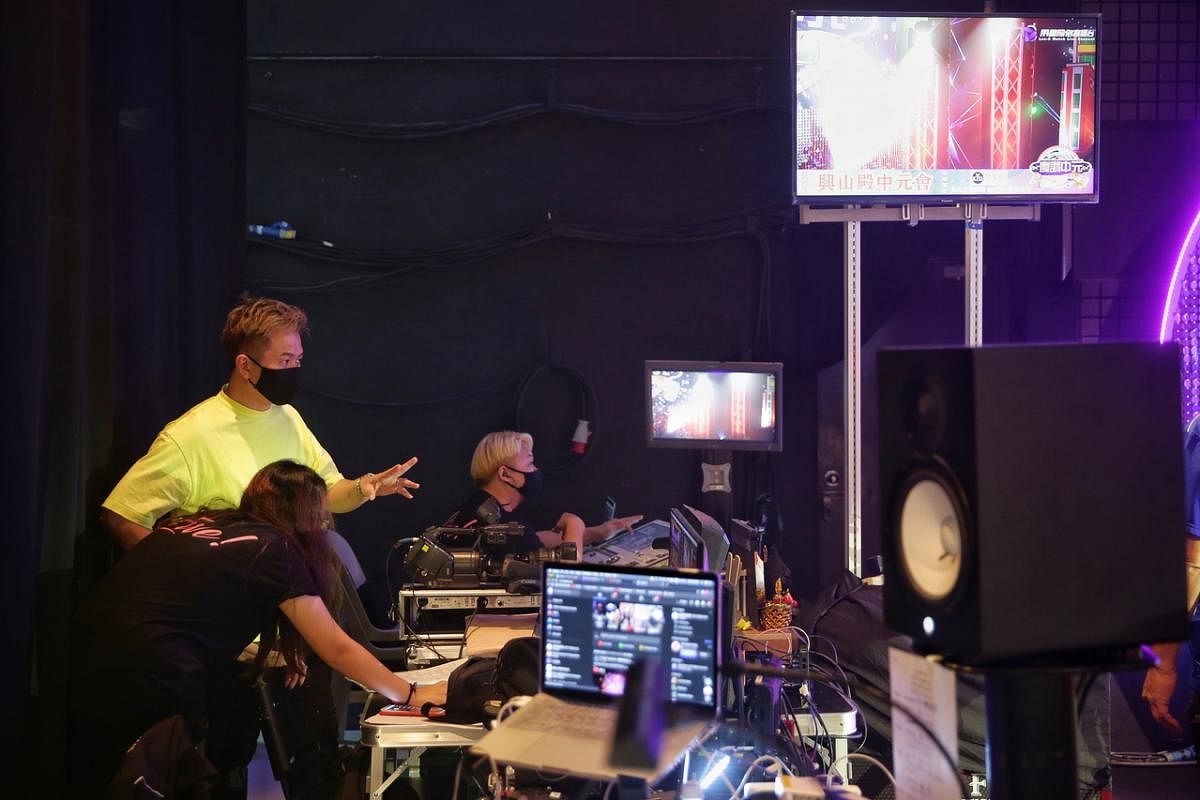


Like a bizarre dream, the snazzily lit stage comes alive with the usual song-and-dance routine, but there is no audience below it.
The applause is silent. It comes in digital waves of hearts, thumbs up and smiling face emoticons.
This Hungry Ghost Festival, traditionally held during the seventh lunar month, has none of the usual exuberance of past years as large-scale events are still not allowed to take place.
"The getai culture has been in Singapore for decades. This is the first time that there is completely no large-scale festivities, crowds and a lively atmosphere," says getai veteran Wang Lei, 60.
In his 22-year experience, his schedule this year is the worst. Instead of a packed daily calendar for the month, he is down to about 13 shows. All online.
Air stewardess Hu Xiu Huey jumped at the chance when getai organiser Aaron Tan offered her a chance to perform in a show.
The 25-year-old has flown just twice since March, with the last being on June 13 to London, and recently had to take a pay cut.
"Some of my friends are able to continue to work from home, but I'm not, so it's a depressing situation," says Hu.
She is not new to the scene, having performed at getais before, her first when she was just 16.
Still, it was no walk in the park when she faced cameras and screens last week as she participated in her first online getai show.
"You have to try your best to avoid mistakes because once you do, it stays online forever," she says, wryly.
For Mr Tan, 44, founder of Lex(S) Entertainment Productions, just because a getai show has moved online is no reason to scrimp on the quality. His set for the virtual entertainment features a 270-degree-angle view of the stage so that audiences have a more immersive experience.
"Even though people cannot be watching the getai live, we hope that they can feel like they are part of the show," says Mr Tan.
"We hope to let people know that getai can achieve the level of a TV production."
For Wang, the pandemic is affecting his showbiz livelihood greatly - he had no gigs for three months from February to April. He turned to selling frozen seafood through Facebook live streams in April.
That has ironically become a blessing in disguise, as he is now affectionately known by his moniker "mai yu ge", or "fish selling brother" in Mandarin, by netizens who tune in to his frequent streams.
Since March, his Facebook page followers have increased from 10,000 to over 600,000, and business is booming.
He has brought the live-stream sales segment into the online getai, selling products that range from meat and seafood to kitchenware.
"I am very thankful to the temples, grassroots and show organisers who give us the approval and opportunity to sell products on their shows," he says.
Silver linings have emerged from the Covid-19 outbreak.
Like Wang, fellow getai veteran Liu Ling Ling, 58, acknowledges that the number of viewers for online shows is far higher than for the physical shows.
"The ability of online getai shows to reach out to more audience is both good and bad. Yes, you are able to get more eyeballs, but if you are ill-prepared, there are also more people who will see your flaws," says Liu, who has more than 40 years of industry experience.
"Times have changed. It is a different era. In the past, getai was meant for an older audience; now in the digital era, we are looking at a younger audience. So we need new visuals, new faces and we also hope to present a different getai. People wonder what getai will be like in the future. The future is now," she added.
Join ST's WhatsApp Channel and get the latest news and must-reads.
A version of this article appeared in the print edition of The Straits Times on August 31, 2020, with the headline The show must go on(line). Subscribe

